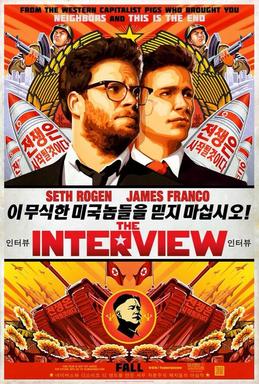You may not have realized it yet, but you're living in a bad neighbourhood. We've
turned a corner with the attack on Sony Pictures. Hacking is hitting us where we live, and that new real estate
happens to be in the virtual realm.
It’s not the distopia that many a sci fi writer would have
you expect. Diminishing social skills, increased anxiety and twitter may suck,
but Snow Crash this ain’t. When you
consider the North Korean hacking an act of terrorism – that is, an action that
leverages fear to advance a political agenda, which it most definitely is – this almost seems
like a step in the right direction.
There are no burning buildings, no shrapnel in the spectators.
Hack attacks are real, but this is an epoch where reality can simply be turned off.
Consider, for example, the mass celebrity hacking last
summer, when stars like Jennifer Lawrence and Kate Upton had nude photos from
their phones hacked out of the cloud and displayed on the internet for all to
see.
From different corners, the scandal simultaneously inspired
mass outrage and apathy (after the
sound of fapping had died down). Victims called it a “sex crime” (which it
undoubtedly is), while the less sympathetic noted that if the best way to
prevent having nude photos stolen from your phone is to simply not take nude
photos with your phone. That logic is infallible, but when Ricky Gervaismade the argument he was met with cries of victim blaming. A few people on twitter went as far
saying, “That’s like saying if you got raped it’s your fault for wearing a
short dress.”
No. It’s more like undressing in front of an open window.
There shouldn’t be anyone with their
eyes pressed up to the glass, but of course there is. Now, peeping is a sex
crime. It’s shameful and cruel, but it can’t give you a venereal disease, can’t
get you pregnant, and most likely won’t cause P.T.S.D. Welcome to the internet.
It’s a rough neighborhood, but not that rough.
By participating in online life, you are buying some shady
real estate. Think downtown Manhattan in the eighties – what you gain in
convenience you sacrifice in security. Even respectable sites like facebook and
ebay fall prey to hackers – the celebrity photos allegedly came from Apple’s
cloud. It’s something the users of the internet have not quite been able to
grasp, and it’s also an oddly unifying concept: no matter how well off we are
in physical reality, we’re all more or less equally vulnerable to cyber attacks
(the wealthy might actually be more at risk). This is something people are only
beginning to grasp, and though I agree we should treat each other with love and
respect, I can also mediate my expectations a little bit.
21st century connectivity has thrown the best and
worst kind of people into a slop and asks us to fend for ourselves. The hackers
I have spoken of do not pose a credible physical threat – not even North Korea,
but these days they don’t have to. It turns out smearing someone’s reputation
with a cluster of embarrassing emails or a nude photo is enough to scare them
off course these days. Destroying someone online is like the equivalent of
destroying them in real life.
When I learned about the Amanda Todd tragedy, the
uncharitable thought came to mind that she should have just deleted her
facebook account. The bullying she endured was mostly online, so you’d think
she could have just turned it off, tuned out and carried on. It
would have been lonely being the only young person not plugged into social
media, but it would still have been a life.
Yet if there's anything these hacks and the reactions to them have shown us, its that people seem oddly unable to keep perspective on their virtual world. For now, being destroyed online is the same as being
destroyed in life.
Snow Crash, indeed.
*Just in time for this post to go to print, Madonna blessed
us all with 6 new completed songs of her new album, following another hack
wherein 13 unfinished demos were leaked onto the internet. Commenting on the
leak, Madonna says, “W don't put
things up on servers anymore. Everything we work on, if we work on computers,
we're not on WiFi, we're not on the Internet, we don't work in a way where
anybody can access the information. Hard drives of music are hand-carried to
people.”
There you have
it. I sense the golden age of the internet is over, and the smart money is on
scaling back our dependence on it. We’ll see where that takes us.

No comments:
Post a Comment